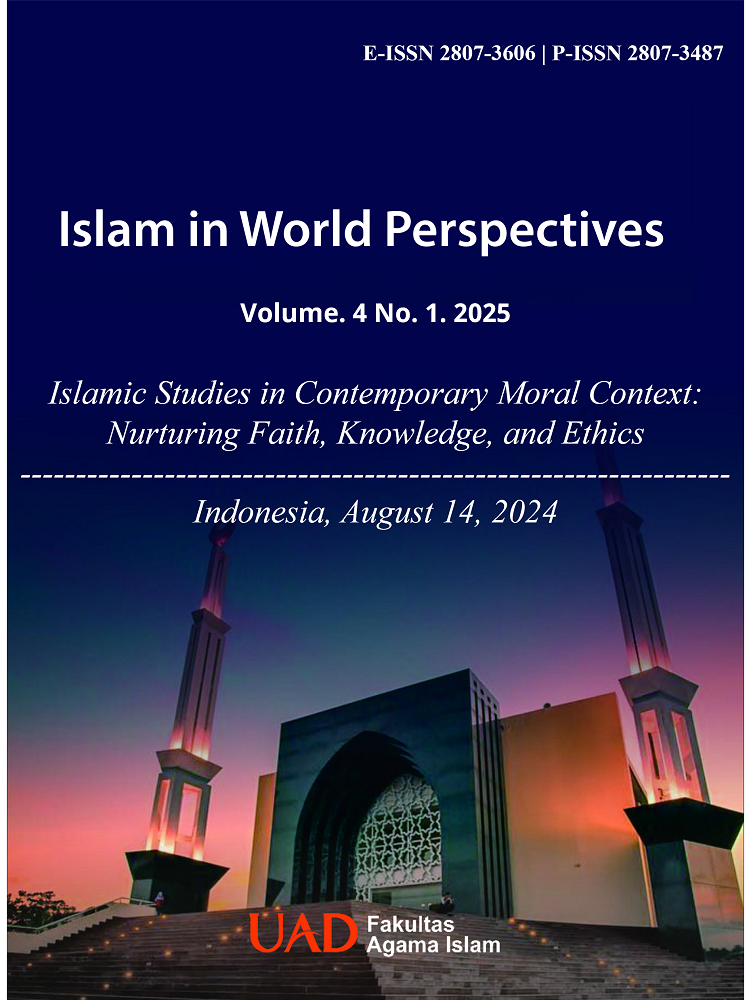Character development of students through aqidah akhlak education: Insights from muhammadiyah educational institutions
Abstract
The background to this research is that many students often commit behavioral deviations and experience declining moral values in Indonesia. This research aims to explore the implementation of Aqidah Akhlak education in developing student character at SMA Muhammadiyah 4 Yogyakarta. Qualitative methods with a descriptive approach were used to collect data through interviews, observation, and documentation. The results of the research show that the implementation of Aqidah Akhlak education has succeeded in influencing the development of student's character, supported by a school environment that facilitates religious programs such as Duha prayers and congregational prayers. Aqidah Akhlak teachers play an important role in an effective learning process. Supporting factors include the teacher's role as a role model in behavior and action. In contrast, inhibiting factors include students' disharmonious family conditions, the influence of gadgets, and the challenges of mentoring teenagers who tend to be exploratory.
Downloads
Published
Issue
Section
License
Copyright (c) 2024 Mufida Nidaul Azzahra, Sutarman Sutarman

This work is licensed under a Creative Commons Attribution-ShareAlike 4.0 International License.
Authors who publish with Islam in world perspectives agree to the following terms:
- Authors retain copyright and grant the journal right of first publication with the work simultaneously licensed under a Creative Commons Attribution License (CC BY-SA 4.0) that allows others to share the work with an acknowledgment of the work's authorship and initial publication in this journal.
- Authors are able to enter into separate, additional contractual arrangements for the non-exclusive distribution of the journal's published version of the work (e.g., post it to an institutional repository or publish it in a book), with an acknowledgment of its initial publication in this journal.
- Authors are permitted and encouraged to post their work online (e.g., in institutional repositories or on their website) prior to and during the submission process, as it can lead to productive exchanges, as well as earlier and greater citation of published work.

This work is licensed under a Creative Commons Attribution-ShareAlike 4.0 International License.



